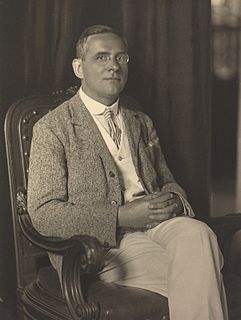A Quote by Swami Vivekananda
The correct meaning of the statement The Vedas are beginningless and eternal is that the law or truth revealed by them is permanent and changeless.
Related Quotes
The courts are run on COMMERCIAL CONTRACT LAW and that is has NOTHING to do with any IN-LAW procedures whatsoever. So the nature of the game is to OBTAIN a CONTRACT with your OPPONENT (Adversary) so that the court can acknowledge and RATIFY the contract and SETTLE and CLOSE the case and move on and if you understand that EVERYTHING in there is happening by way of CONTRACTS instead of trying to get the truth out then MAYBE you'll get the truth to prevail by following the CORRECT procedure to get them to acknowledge the truth by CONTRACTUAL CONSENT.
NPR fired me for telling the truth. The truth is that I worry when I am getting on an airplane and see people dressed in garb that identifies them first and foremost as Muslims. This is not a bigoted statement. It is a statement of my feelings, my fears after the terrorist attacks of 9/11 by radical Muslims.
Yesterday NPR fired me for telling the truth. The truth is that I worry when I am getting on an airplane and see people dressed in garb that identifies them first and foremost as Muslims. This is not a bigoted statement. It is a statement of my feelings, my fears after the terrorist attacks of 9/11 by radical Muslims.
A story is a way to say something that can't be said any other way, and it takes every word in the story to say what the meaning is. You tell a story because a statement would be inadequate. When anybody asks what a story is about, the only proper thing is to tell them to read the story. The meaning of fiction is not abstract meaning but experienced meaning.
Justice is immortal, eternal, and immutable, like God Himself; and the development of law is only then a progress when it is directed towards those principles which like Him, are eternal; and whenever prejudice or error succeeds in establishing in customary law any doctrine contrary to eternal justice.
I don't think the law exists to arrive at the truth. If it did, we wouldn't have exclusionary rules, we wouldn't have presumptions of innocence, we wouldn't have proof beyond reasonable doubt. There's an enormous difference between the role of truth in law and the role of truth in science. In law, truth is one among many goals.




































